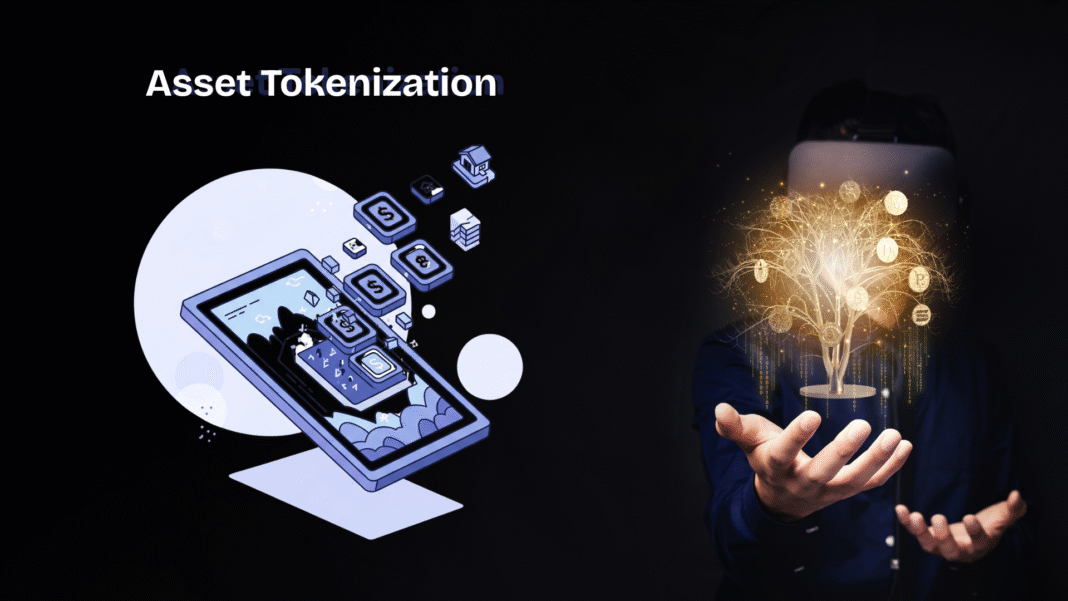The Future of Investing in Real Estate, Gold, and More
Imagine owning a small portion of a premium commercial building in Mumbai’s Bandra Kurla Complex (BKC) — one of India’s most expensive business districts — without needing ₹5 crores in your bank account. Welcome to the world of asset tokenization, where technology meets traditional investing to create opportunities once available only to the ultra-rich.
In simple terms, tokenization of assets means converting ownership rights of a real-world asset into a digital token that lives on a blockchain. These tokens can be traded, sold, or held just like shares or cryptocurrencies. The goal? To make investment in high-value, illiquid assets more accessible, transparent, and efficient.
🔍 Understanding Tokenization with an Example
Let’s say a Grade-A office space in Mumbai’s BKC is worth ₹10 crore. Through a regulated tokenization platform, the property can be divided into 1,00,000 digital tokens, each worth ₹1,000. These tokens are then sold to investors across India. Now, instead of one person or institution owning the property, hundreds or thousands of investors can participate in the asset’s ownership through fractional tokens.
Each investor owns a stake in the property and may earn a share of rental income, capital appreciation, or proceeds if the property is sold — depending on the structure of the tokenization agreement.
🎯 What Can Be Tokenized?
Tokenization is not just limited to real estate. Almost any valuable asset can be tokenized, including:
- Real Estate: Residential or commercial properties
- Gold and Precious Metals: 1 token = 1 gram of gold (e.g., Tether Gold)
- Art & Collectibles: Tokenizing paintings, music, or sports memorabilia
- Bonds & Equities: Governments and companies are exploring tokenized securities
- Intellectual Property: Royalties from music or patents
- Mutual Funds: In the future, even SIPs could be tokenized for secondary market trading
⚙️ How Tokenization Works
The process generally involves these steps:
- Asset Selection & Legal Setup: Ensuring the asset is eligible and legally ready to be fractionalized.
- Smart Contracts: Blockchain-based codes define how ownership and revenue sharing will work.
- Token Creation: Digital tokens are generated to represent ownership units.
- Investor Participation: Investors buy tokens through a secure platform.
- Trading & Liquidity: Tokens can be traded on approved exchanges or platforms, making the asset liquid.
All transactions are recorded on a blockchain — making them tamper-proof, transparent, and secure.
✅ Benefits of Tokenization
| Benefit | Why it Matters |
|---|---|
| Fractional Ownership | Invest as little as ₹500 in a ₹1 crore asset |
| Greater Liquidity | Trade tokens without needing to sell the whole asset |
| Transparency | Blockchain ensures every transaction is visible and traceable |
| Lower Costs | Reduces reliance on brokers, paperwork, and intermediaries |
| Faster Settlements | Transactions happen in minutes, not days |
⚠️ Challenges to Be Aware Of
While tokenization is exciting, it’s not without risks:
- Regulatory Uncertainty: India does not yet have a clear framework
- Legal Enforcement: Court recognition of token-based ownership is still evolving
- Platform Risk: Not all tokenization platforms are trustworthy or licensed
- Liquidity Trap: Just because something is tokenized doesn’t mean it will be easily sellable
🌍 Real-World Examples of Tokenization Across the Globe
Tokenization is already transforming global finance and investment. In the U.S., platforms like RealT allow investors to buy fractional ownership in rental properties using blockchain-based tokens, earning regular rental income. In Switzerland, SIX Digital Exchange (SDX) has launched regulated tokenized bonds and equities, while Singapore’s Monetary Authority is piloting tokenized government bonds and FX settlements under Project Guardian. Even luxury brands are joining the trend — Louis Vuitton and Prada have experimented with tokenizing luxury goods to prove authenticity via NFTs. From real estate in Dubai to gold-backed tokens in Australia, tokenization is not just theory — it’s a working, regulated reality in many parts of the world.
Tokenization in India: Early Days, Big Potential
India’s regulators like SEBI and RBI are cautiously exploring blockchain-based solutions. In 2023, SEBI invited ideas for tokenized securities and bonds. Meanwhile, India launched its CBDC (Central Bank Digital Currency) — a step toward a tokenized financial ecosystem.
Some Indian startups are experimenting with real estate tokenization, though investor protection and legal enforceability remain grey areas. As regulations mature, tokenization could reshape access to real estate, gold, and other high-value investments — especially for small retail investors.
🧠 Final Thoughts
Tokenization is not a buzzword. It’s a revolution in how assets are owned, traded, and valued. While the space is still evolving, early movers who educate themselves — and stay cautious — could benefit from a more inclusive and tech-driven investment future.
For Indian investors, the key is to understand the fundamentals, watch for regulatory updates, and invest only through legitimate platforms with proper due diligence.




